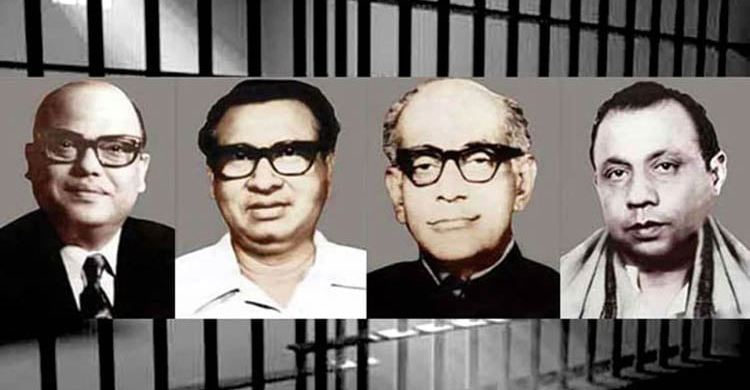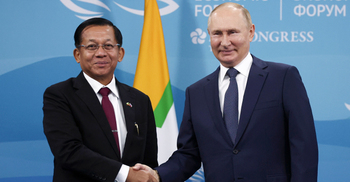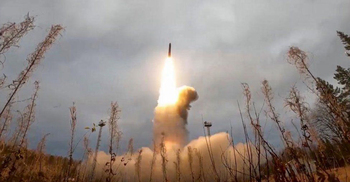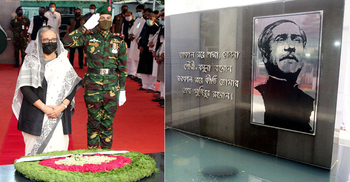Jail Killing Day observed

The Jail Killing Day, the second disgraceful incident in the country after the brutal assassination of Father of the Nation Bangabandhu Sheikh Mujibur Rahman and most of his family members on August 15 in 1975, was observed with due respect on Thursday.
On November 3 in 1975, four national leaders and heroes of the country's Liberation War -- Syed Nazrul Islam, Tajuddin Ahmad, Captain Mansur Ali and AHM Quamruzzaman-- were assassinated inside the Dhaka Central Jail.
The four leaders played a key role in forming the Mujibnagar government in exile, that led the Liberation War in 1971, with Syed Nazrul Islam as the acting president, Tajuddin Ahmad as the prime minister, Mansur Ali as the finance minister and AHM Qamruzzaman as the home, relief and rehabilitation minister.
The nation remembered the four national leaders, who were also the great heroes of the Liberation War in 1971, today with due respect.
Different political parties including the ruling Awami League (AL) chalked out programme to observe the mournful day across the country.
The AL's programme included keeping the national and party flags at half-mast at party's Bangabandhu Avenue Central Office and Bangabandhu Bhaban as well as unit offices across the country at the down.
Wearing of black badges and hoisting of black flag were also included in the programme.
AL leaders placed wreaths at the portrait of Bangabandhu at Bangabandhu Bhaban in Dhanmondi at 7am.
Wreaths were also placed at the graves of Syed Nazrul Islam, Tajuddin Ahmad, Mansur Ali at Banani graveyard around 7.30am while fateha, milad-mahfil and munajat were also offered there.
Paying floral wreaths, offering fateha, milad-mahfil and munajat were arranged at the grave of national leader Shaheed AHM Qamruzzaman in Rajshahi.
Prime Minister Sheikh Hasina paid rich tributes to Bangabandhu and four national leaders marking the Jail Killing Day.
In showing respect to the memory of the Father of the Nation and the four national leaders, the premier placed wreaths at the portrait of Bangabandhu in front of Bangabandhu Memorial Museum at Dhanmondi Road No 32 here this morning.
Sheikh Hasina first laid a wreath as the prime minister at the portrait of Bangabandhu around 7 am.
After placing the wreath, she stood in solemn silence there for some time as a mark of profound respect to the memories of Bangabandhu and the four national leaders.
Flanked by central leaders of the party, Sheikh Hasina also placed another wreath as the president of Awami League (AL) at the portrait of Bangabandhu.
Later, the leaders and workers of AL's associate bodies, including Awami Jubo League, Chhatra League, Mohila Awami League, Sramik League, Krishak League, Jubo Mohila League and Swechchasebok League, as well as other socio-cultural organizations also paid homage to Bangabandhu and four national leaders by placing wreaths at the portrait of the Father of the Nation on the occasion.
The premier later went to the Banani Graveyard and paid rich tributes to martyrs of the August 15 and November 3, 1975 massacres.
Flanked by senior leaders of the party, Sheikh Hasina placed wreaths as the president of Awami League (AL) at the Banani Graveyard.
The prime minister also sprinkled flower petals on the graves of the martyrs of the August 15 and November 3 of 1975 massacres.
AL arranged a discussion at Bangabandhu International Conference Centre (BICC) in the city at 3pm.
Awami League President and Prime Minister Sheikh Hasina chaired the discussion.
Party's General Secretary and Road Transport and Bridges Minister Obaidul Quader delivered the welcome address.
AL Presidium Members, Sheikh Fazlul Karim Selim, MP, Engineer Mosharraf Hossain, MP, and Mofazzel Hossain Chowdhury Maya, Bir Bikram, executive committee member, Parvin Zaman Kalpana, Syed Nazrul Islam's daughter Dr Syeda Zakia Noor Lipi, MP,
Dhaka South and North City AL Presidents, Abu Ahmed Monnafi and Sheikh Bazlur Rahman, also spoke.
AL Publicity and Publication Secretary Dr Abdus Sobhan Golap, MP, and his deputy Aminul Islam moderated the discussion.
At the outset of the discussion, a one minute silence was observed as a mark of respect to the martyrs of the August 15 and November 3 of 1975 massacres.
Khondoker Mustaque Ahmad and other two killers of Bangabandhu Sheikh Mujibur Rahman-- Colonel (retd) Syed Faruque Rahman and Lieutenant Colonel (retd) Khondoker Abdur Rashid-- had designed the heinous killing spree of the four national leaders inside the jail.
A five-member killing squad was also formed led by Resalder Musleh Uddin who was very much close to Colonel (retd) Faruque Rahman.
"Khondoker Mustaque Ahmad had designed the heinous killing plot exclusively with Farque Rahman and Abdur Rashid," said Golam Murshid in his book 'Muktijuddo o Tarpar'.
A probe commission was formed on September 18 in 1980 in London over the killings of August 15 in 1975 and subsequently the jail killing on November 3 in the same year.
The probe commission was formed following an appeal lodged by Bangabandhu's two daughters Prime Minister Sheikh Hasina and Sheikh Rehana, Mohammad Selim, son of slain leader Monsur Ali and Syed Ashraful Islam, son of slain leader Syed Nazrul Islam.
In that time, the probe commission became ineffective due to non-cooperation by the then Bangladesh government led by Ziaur Rahman and refused to provide visa by the government to a probe commission member.
Source: BSS







